Bring Me The Horizon's Matt Kean on his bass history and the band's unstoppable rise
Lessons from BMTH's low-end
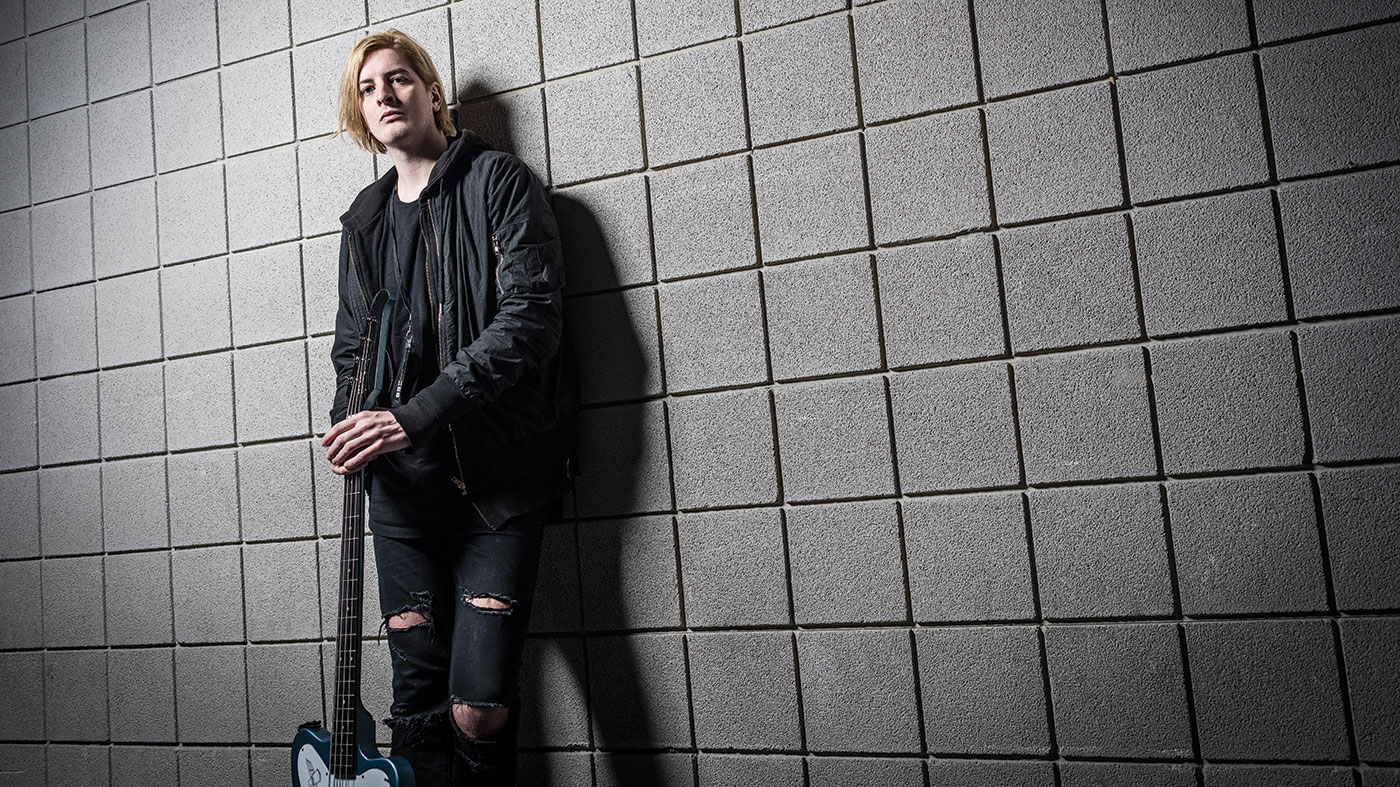
Introduction
Matt Kean and his band Bring Me The Horizon have spent the last decade rising up the ranks from clubs to sold-out stadiums. “I don’t even know any theory!” he tells Joel McIver...
Heavy metal is an ever-changing beast, as the headbangers among you will know. Depending on your age, you’ll recall metal either as a British creation associated with a rebellious lifestyle and mullet hairdos, or as a largely American phenomenon beloved of everyone from jocks to accountants. The latter is the case these days, making it all the more surprising that one of the biggest bands to step up to the metal plate in recent years comes from Sheffield.
At this point, they’re massive: when we catch up with bassist Matt Kean, it’s backstage at the O2 Arena in London
Bring Me The Horizon have described an interesting trajectory since they first entered the public eye a decade ago. The band - currently singer Oliver Sykes, guitarist Lee Malia, keyboardist Jordan Fish, bassist Matt Kean and drummer Matt Nicholls - began their careers playing deathcore, an anthemic form of extreme metal loaded with breakdowns and Sykes’ shredded-larynx shrieks.
Tricky to play whatever your instrument, but particularly on bass given the genre’s preference for low tunings and gargantuan string gauges, the music was complex and difficult to digest (depending on your perspective).
However, the years have passed and BMTH (who got their name from the line “Bring me that horizon” in a Pirates Of The Caribbean film) are playing slower, simpler, more anthemic music that has gained them a new, wider fanbase and concomitantly greater degrees of success. At this point, they’re massive: when we catch up with bassist Matt Kean, it’s backstage at the O2 Arena in London, which has been long sold out to hordes of screaming teenagers.
Kean settles on the sofa in a luxurious backstage room, confiding in us that he normally declines interview requests because he doesn’t like answering the usual questions. The fact that we’re all about the bass must have persuaded him to say yes this time, then: either that, or it’s our natural, unaffected charm. Take it away...
Don't Miss
Bring Me The Horizon drummer Matt Nicholls on confidence, computer composition, clicks and more
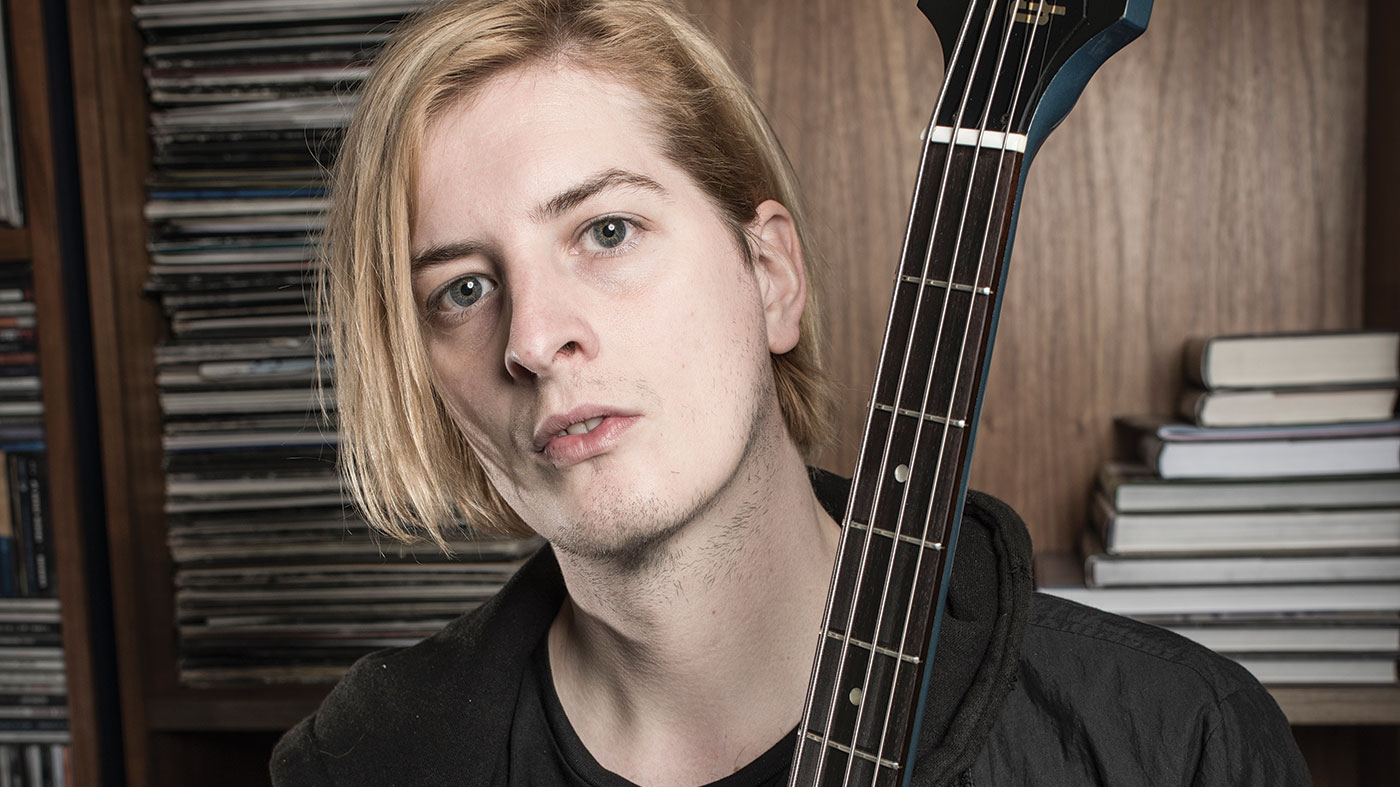
Looking back
Matt, selling out the O2 Arena must feel like a huge achievement?
“It’s pretty crazy, because we only started this band as something to do. Some of us were at college, I was on the dole. I didn’t have much else to do, and where we grew up, there weren’t many options available to people.
“We wanted to get out there and see the country, so we started out touring in cars: we’d load our stuff up because someone had promised us a gig in a pub in Hartlepool or somewhere. It progressed from there.”
How did you get into bass?
I wondered what to do apart from play on the computer all the time, so I went out and got a bass on layaway
“When I was growing up I always wanted to be a footballer, but I eventually got it into my head that that was never going to happen. All my mates were finishing school and going off to college or getting jobs, so I went to college too, but it was only two days a week, doing biology, physics and chemistry A Levels.
“All my mates were busy on the three days off a week that I had, and I realised that I was going to lose touch with them. I wondered what to do apart from play on the computer all the time, so I went out and got a bass on layaway.”
What was it?
“It was a Peavey starter pack with a combo, which was all right for what it cost, and anyway it was all that we could afford, so it was cool. I spent all day upstairs playing it. I used to print all the tabs off the internet and take them up to my room and then play along with my favourite CDs. It was all easy stuff to begin with, like Blink-182 and Green Day, anything mainstream that was easy to play. I would go over and over those tabs.”
The picking speed in Bring Me The Horizon’s early music was demanding. How did you develop your technique so fast?
“I just went with it, to be honest. Lee Malia and our original guitarist Curtis Ward were crazy guitarists: I went to see them in their band before ours, which was a bit like a Metallica tribute band, and I thought they were amazing. They’d only been playing a year and they were so far beyond me, but I caught up. I never had any lessons or anything, I just had my own style, so I’ve probably got really bad technique. I don’t even know any theory or anything. I’ve never really delved into that side of it, but they’d play a riff.”
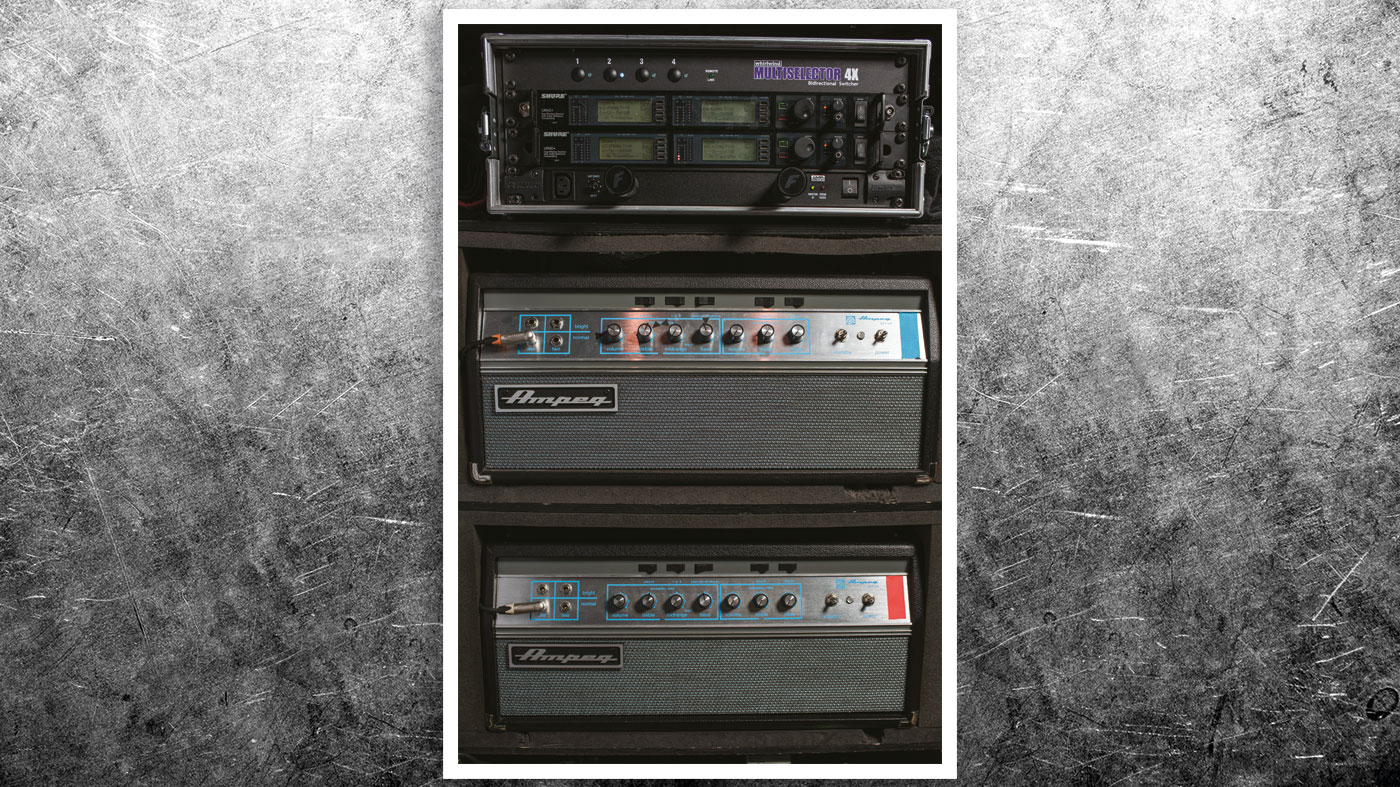
Secrets of success
So is the secret simply practice?
“Yes, I would say so, but also you have to play music you enjoy. Any song that I listened to and I liked, I played. If you listen to music that you don’t like, you probably don’t have that ambition to learn it. So whatever you’re into, even if it’s not ultimately what you want to be playing, go with that. You’ll have more fun that way.”
What else do you need to make a band work?
We’d practise and then do shows at the weekend. That was all we did. We put everything into the band, all of us
“You really need focus. I finished college when we were starting out, and I was on the dole for a year. During that time, there was a course that you could do if you were into music, where I would go to Red Tape Studios in Sheffield and they’d teach you about recording and stuff like that. I did that a few days a week, and we’d practise and then do shows at the weekend. That was all we did. We put everything into the band, all of us.
“I was in bands before and I’d turn up to practice, and the drummer wouldn’t be there, or someone would call and say they couldn’t make it, but with us, when we first started we were like, ‘When are we doing the practice?’ and we were totally into it.”
When did BMTH become a full-time thing?
“Quite early on, because when we weren’t touring we’d just hang out together. We didn’t have any money, but we didn’t care. Any money we had, we put into touring, and if we got paid petrol money it was fine by us. We didn’t need any money to survive, because if we weren’t touring we’d just be at home playing music and talking about music. We were lazy bums, which is probably not a good example to set, now I come to think of it!”
What basses did you play as time passed?
“When we first started, it was all about how much the basses cost, so after that Peavey I bought a really cheap Ibanez. It was my only bass at that point, so once we started touring and getting noticed, Ibanez gave us a discount on a lot of their models and I used their four-strings for a while. I had five-strings too, but I didn’t use them much: I was more into them because of the string gauge, because we played pretty low: the first album was in drop A.
“As we progressed I bought a few Fenders, and Sandberg gave me a discount as well. It was really hard to get an endorsement, but I’ve finally got one now through Gibson. I’ve been playing them for four years.”
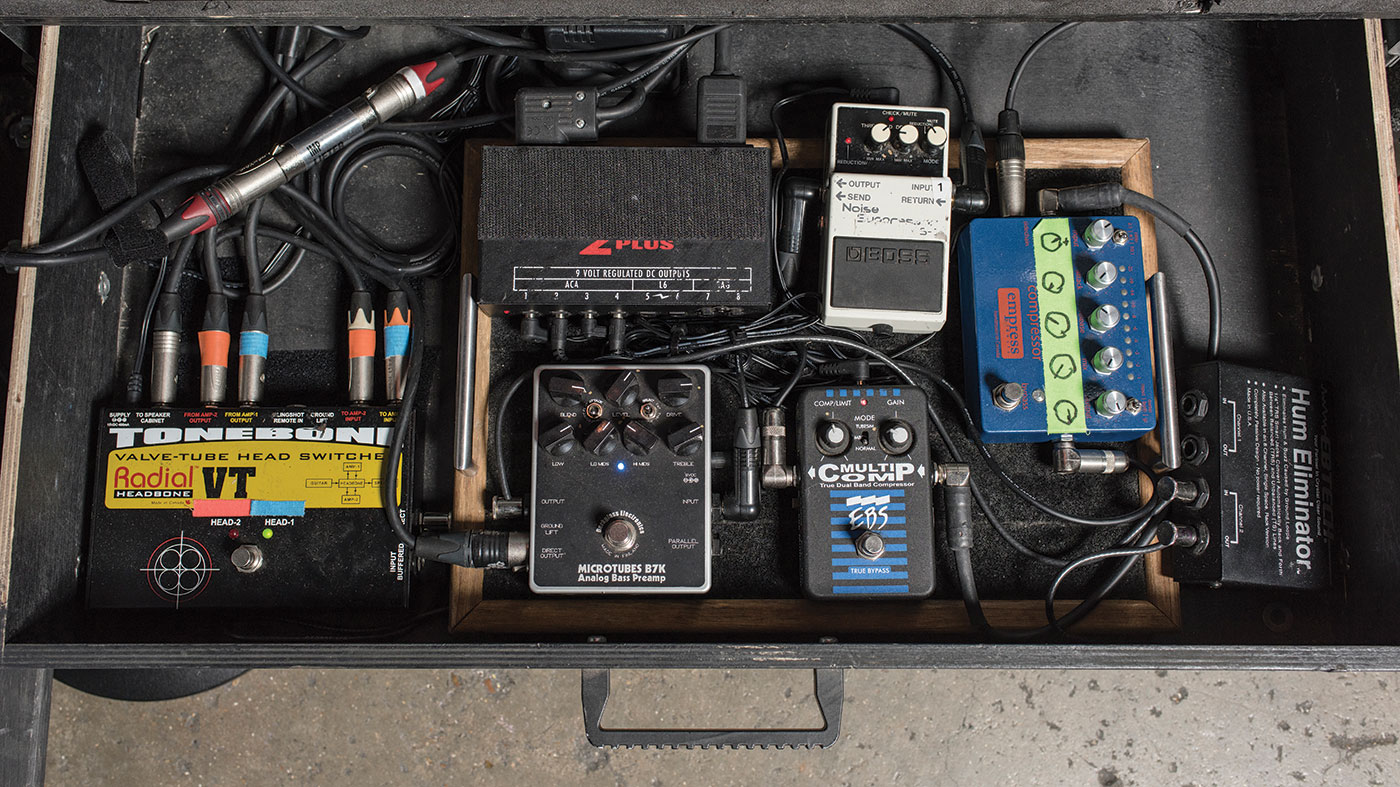
The gear
How many basses do you tour with?
“I bring four on tour: I use the EB model as well. I have the action quite high by choice, because the gauges are so big on the lower strings. They’re Ernie Balls: they didn’t use to make the gauge that we needed, but then they ended up making a custom gauge for us. My lowest string is a .145, and they didn’t make them before that, but I think they sell them now because we requested them. I guess heavier music has started getting more popular.”
Do you bring an amp out with you?
I do use an Empress compressor, though. It has a line in, and we’ve got it hooked up so that it’s triggered by the bass drum
“Yes, an Ampeg SVT-VR reissue. I was using a Classic, and the fi rst time we used a VR it was a rental one in Australia. It sounded better than my other one, and a bit warmer.”
Any effects?
“No effects, I keep it simple. On the newest album I do use an Empress compressor, though. It has a line in, and we’ve got it hooked up so that it’s triggered by the bass drum, and it cuts out on one of the songs. I don’t think anyone else does that. It’s the song ‘Oh No’, which is a bit dancey, so it has the bass drum all the way through it.
“The bass goes along with the bass drum, and cuts out. That’s the pedal’s only purpose, for that one song. We wrote the song like that and didn’t really think about how we were going to do it live. In the studio it’s easy to do, but quite difficult to replicate live. I was searching for a way to do it, and found this pedal, and we played it like that.”
What do you do if the compressor goes down?
“Panic! No, we have a spare. It would sound similar without it anyway.”
How do you write your bass parts?
“I mostly lock in with the guitar riffs. That’s what I’ve always done, especially with the older songs, where the easiest way was just to follow what Lee was doing. My tone is a little bit more aggressive live than it is on the CD, because I need it to cut through a little bit, which I do with the EQs.
“When we were recording the older albums, we normally recorded the drums, then all the guitars and then move onto bass: I would be last, sometimes even after the vocals, so I’d be looking at the clock, thinking ‘I don’t want to cost the band too much.’ Nowadays we do the albums song by song, so everyone’s always doing something.”
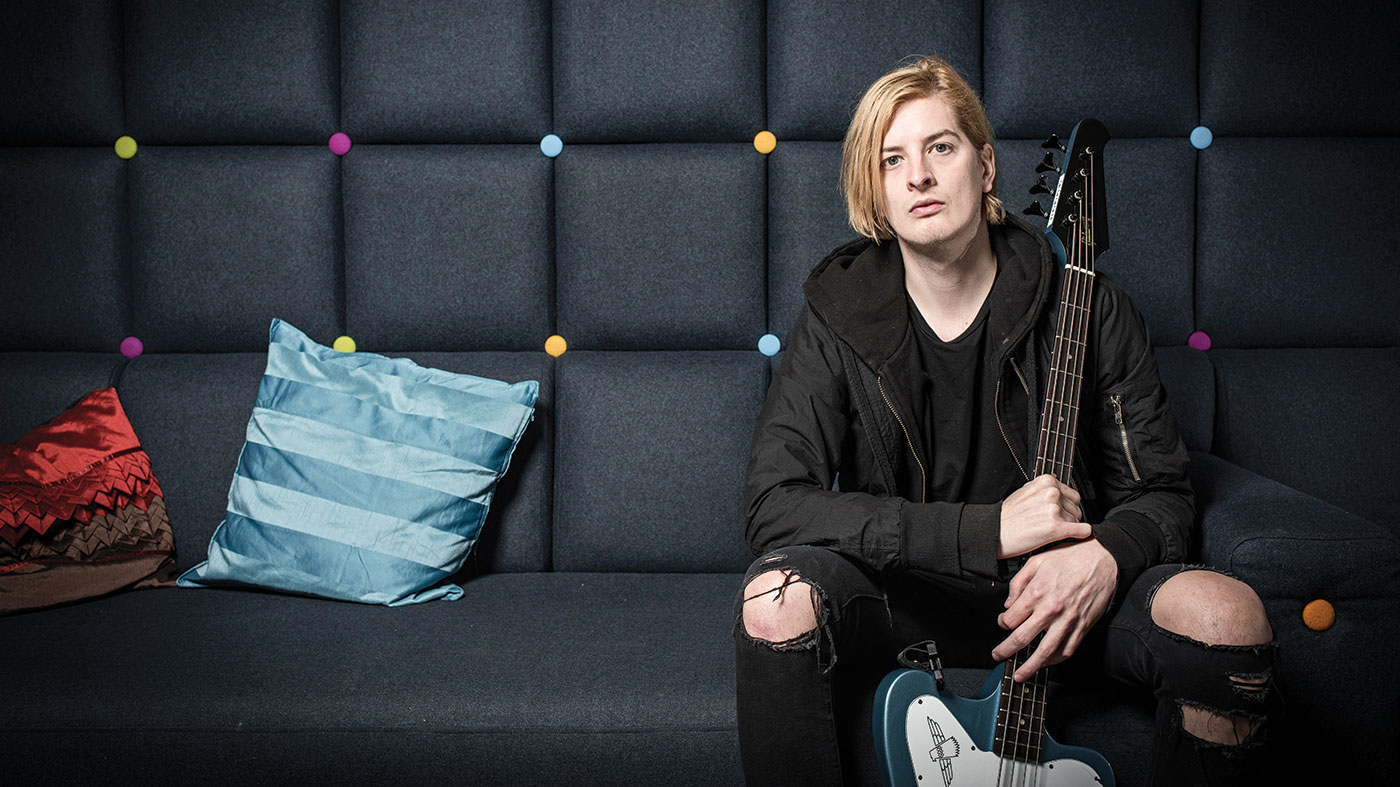
Heroes and changes
Who are your bass heroes?
“I never idolised anyone, but I defi nitely appreciate it when I see a bass player who’s good. For me, it was always just about being in a band. I never wanted to be a particular person.”
How has your bass playing changed over time?
We never reached for anything, we just concentrated on what we were doing right now
“When we first started out, we used to think ‘This riff has to be super-technical!’ but as we’ve got older we’ve learned to relax into the song a little bit more. You think about the song, rather than your part and how crazy technical it is.
“It’s harder to make a song really tasteful and not take away from it. Obviously the guy from the Red Hot Chili Peppers can play like crazy, but he doesn’t go into a Victor Wooten style, does he? That’s a really hard thing to do.”
Your latest album, That’s The Spirit, is much mellower than previous ones. Does that have an impact on your bass playing?
“You have to play a bit more tastefully: you can’t be whacking it too hard like we did on the older songs. It’s fun to play in different ways, especially live. As the set goes along, there’s aggressive songs and there’s mellow ones as well. And I’m getting old now, so I can sit into the mellow ones a bit.”
Do you have any ambitions to fulfil?
“At the start, we just wanted to play gigs. Just the fact that we’ve made it to this point is a surprise. If you’d been interviewing me the day we played Wembley, it would have been the same: we never reached for anything, we just concentrated on what we were doing right now, and I think that’s the best way to do it. We’ve never been disappointed with how everything’s gone, because we never expected anything!”
But you must have pinch-yourself moments.
“Oh yes, that often happens, usually afterwards. I’ll get home after a week on tour and think, ‘That was crazy...’”
Don't Miss
Bring Me The Horizon drummer Matt Nicholls on confidence, computer composition, clicks and more

